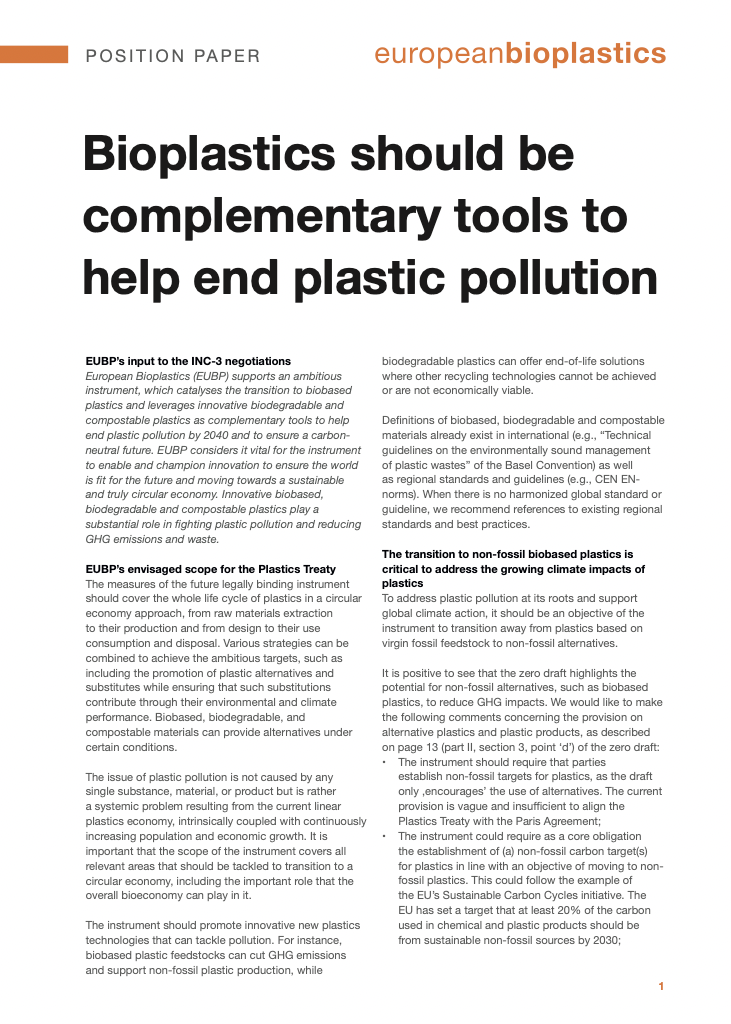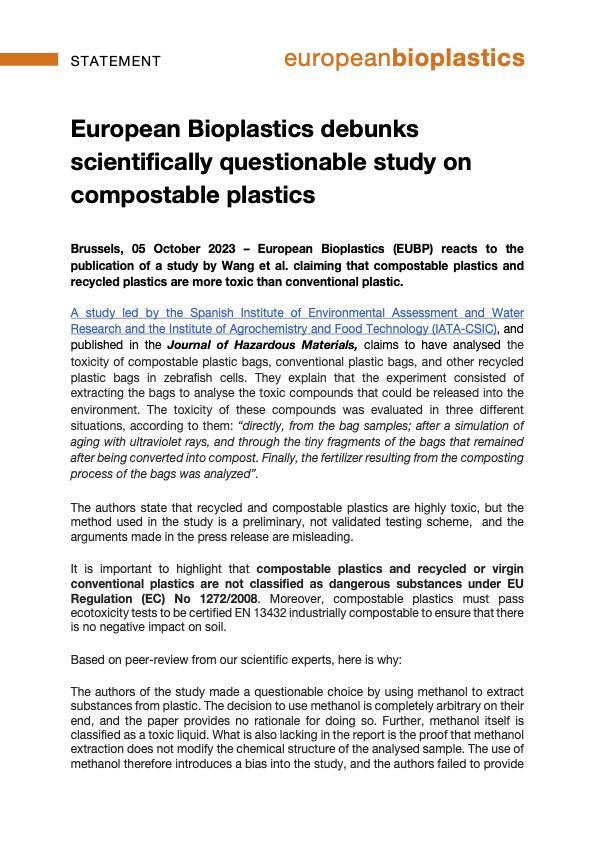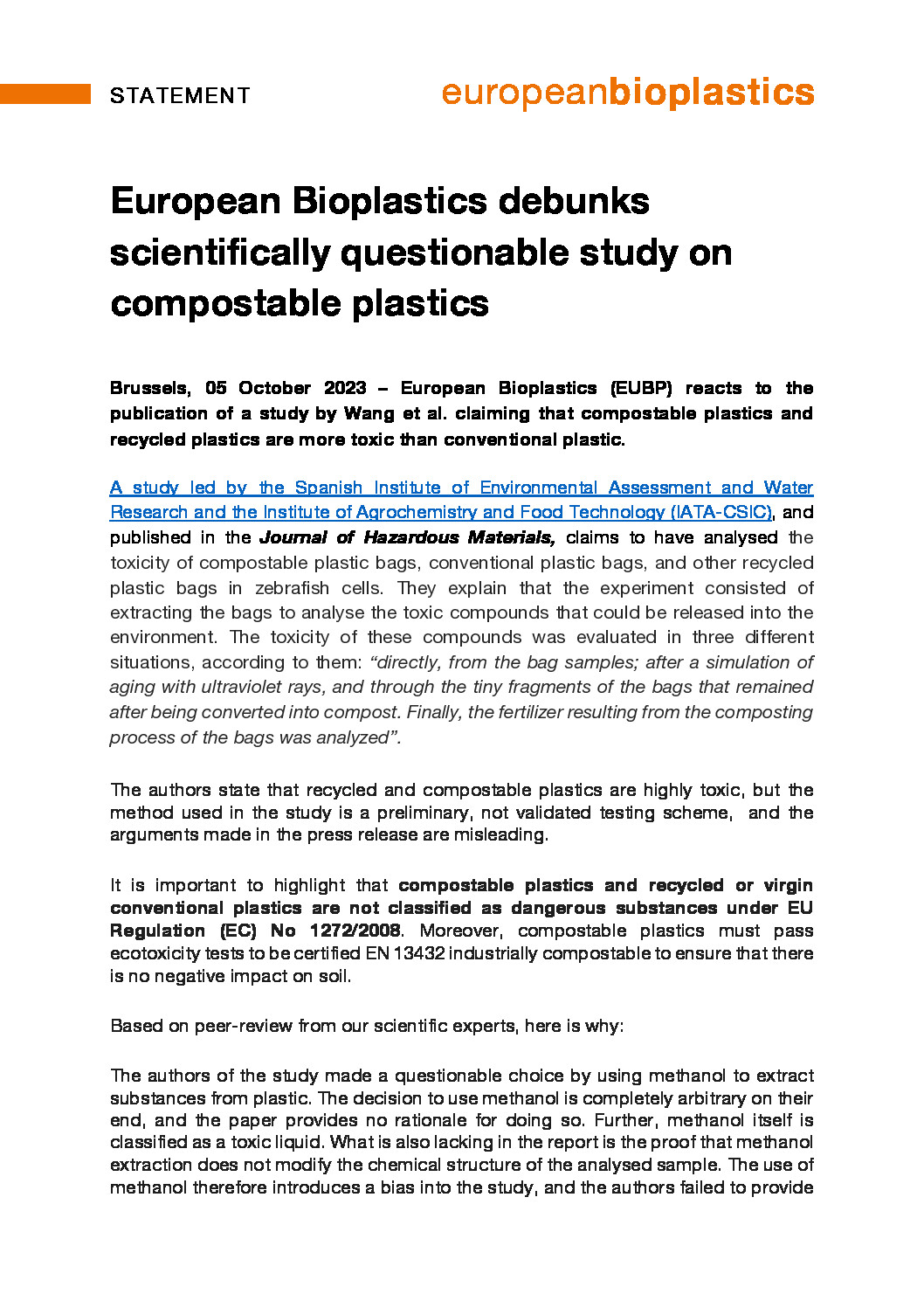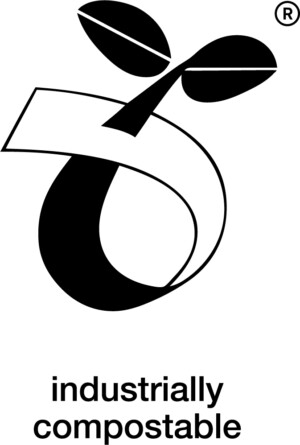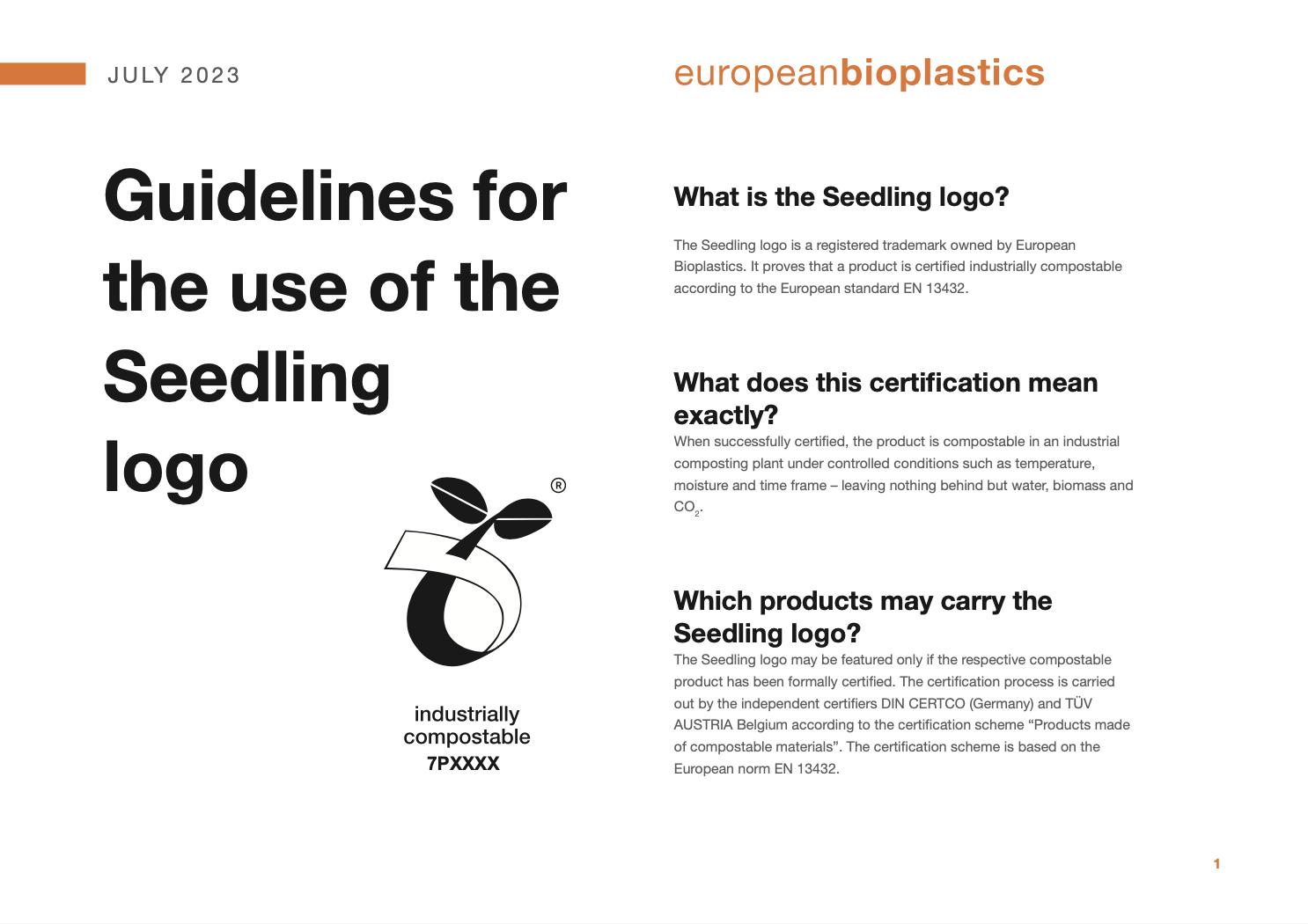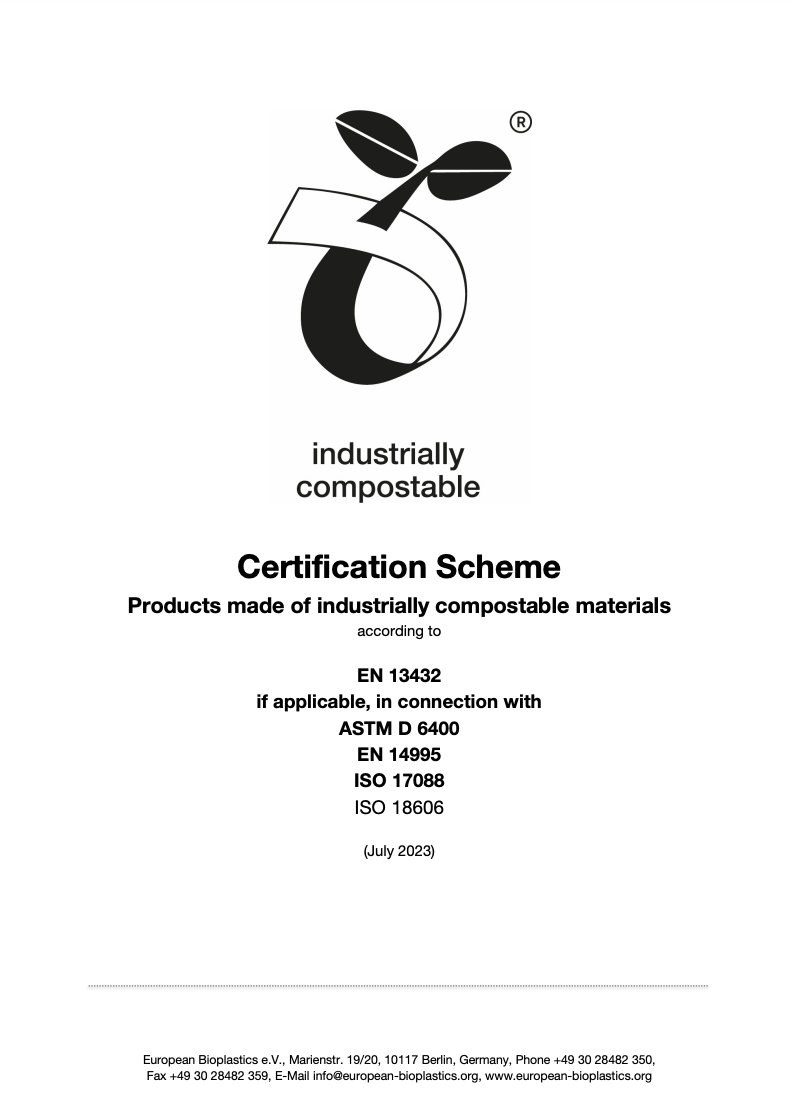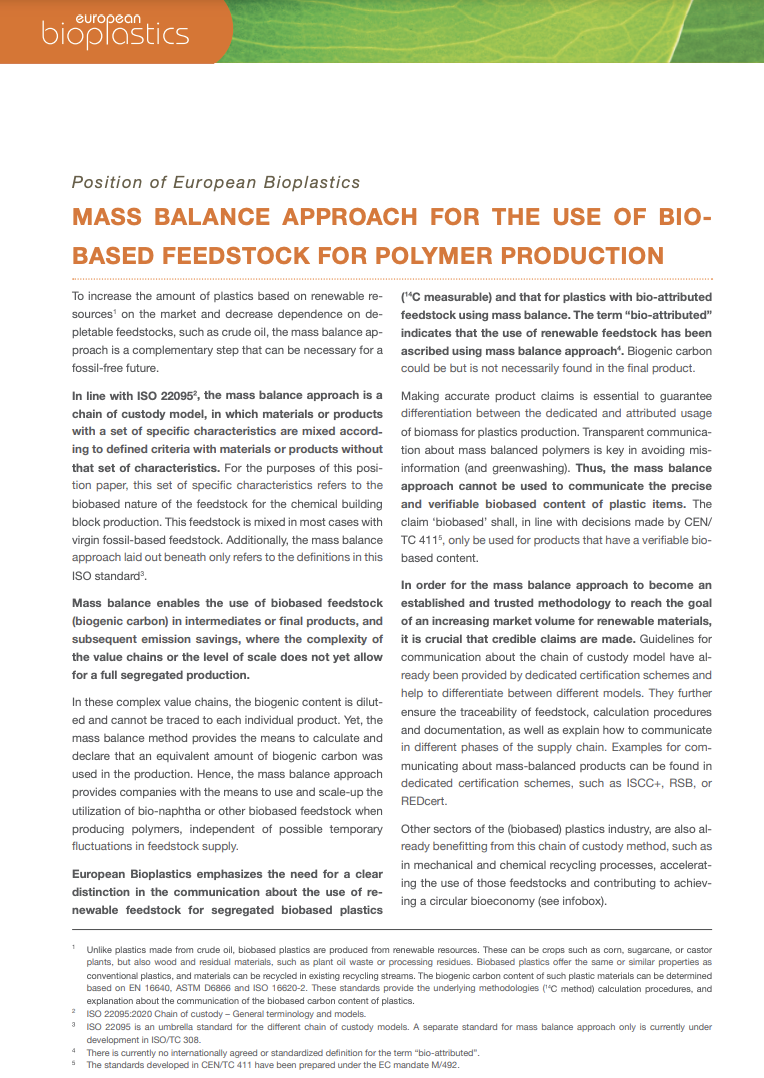Bioplastics should be complementary tools to help end plastic pollution
Open the document European Bioplastics (EUBP) supports an ambitious instrument, which catalyses the transition to biobased plastics and leverages innovative biodegradable and compostable plastics as complementary tools to help end plastic pollution by 2040 and to ensure a carbon- neutral future. EUBP considers it vital for the instrument to enable and champion innovation [...]
